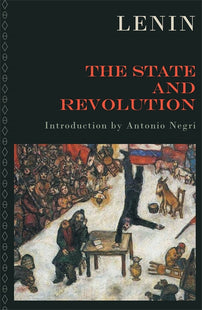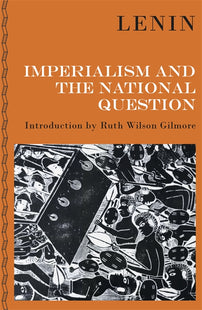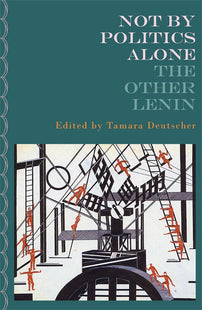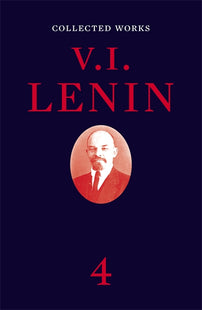The Novel of Lenin: Chapter Five
The fifth installment of our nine-part series: The Novel of Lenin by Joseph Andras: The Insurrection Begins, The Role of the Soviet, Repression.

Chapter Five
1904-1907: The Insurrection Begins, The Role of the Soviet, Repression
We are in 1905. In Saint Petersburg, workers in the Putilovsky factory go on strike: they call for the rehiring of their fired comrades and the demission of a foreman. The director refuses and threatens to fire the majority of the workers. Georgy Gapon, an orthodox priest, leads the dispute and sends the director in question a list of 12 demands which, naturally, do nothing to change his position. The strike rolls on. Another factory. Then another. Rather than trying to negotiate with management, Gapon tries the government and writes a petition. Revolutionary militants join the revolt, but it must be admitted: Gapon is the leader; the people adore him. The militants consider the plea to the Tsar a political error - the regime must be broken, not coaxed.
On January 22, the crowd marches to the Winter Palace. Gapon, with his thick beard, a cross around his neck, leads the charge. Portraits of the Tsar are raised, the crowd hopes only for favors. However, the Tsar is not there. His troops greet them, and they fire. It is a massacre. “The uprising has begun. Force against Force. Street fighting is raging, barricades are being thrown up, rifles are cracking, guns are booming. Rivers of blood are flowing, the civil war for freedom is blazing up,” writes Lenin, who advises the immediate overthrow of the government. Gapon now promises the death of the Tsar. He heads to Geneva, where he meets Lenin in a café. The latter recognizes his historical virtues but judges him to be far too confused. The man of faith, it is true, has no taste for theory. Still, “the interview left him in no doubt that Gapon was completely sincere,” notes Tony Cliff in his Lenin: Building the Party (1893-1914). Trotsky secretly returns to Russia, and a few months later, Lenin writes that socialist revolution will soon follow the democratic revolution. In October, Nicolas II attempts to contain public rage by amnestying political outlaws. Lenin rushes back to his native land. In disguise, he helps run a Saint Petersburg soviet and writes texts on the art of combat. “For him, the soviet was not only a new form of organisation of the proletariat in struggle; it was the form of future workers’ power. He did not evolve this idea in a vacuum. He was articulating and generalising what many workers felt instinctively,” writes Cliff. Given the exceptional situation, Bolsheviks and Mensheviks gather together. The soviet is repressed. Trotsky, its Menshevik co-president, is arrested. A general strike is called, the Bolsheviks start target practice and exhort the people to take up arms. Moscow is adorned with barricades, the insurgents equip themselves as best they can, flames can be seen, a member of the police falls in front of his apartment. A general commands the extermination of all the militants; by the end of December, the insurrection is crushed. The revolution dies before it can bloom.
Condemned to exile in Siberia, Trotsky manages to escape with the help of a peasant and reaches Finland. There he finds Lenin and Martov, an experienced Menshevik figure. In My Life, he will recall: “Lenin spoke approvingly of my work in prison, but he taunted me for not drawing the necessary conclusions, in other words, for not going over to the Bolsheviks. He was right in this.”
In April 1906 the fourth party congress takes place in Stockholm. This time, the Mensheviks have the majority. Nicolas II, eager, tactically, to temper his subjects, accepted the creation of a legislative assembly – the State Duma. The people voted, albeit in a strictly – and unequally – supervised manner. Lenin, also tactically, was in favor of electoral participation. The majority of the Bolsheviks were not. He rallied. The results of the ballot are revealed during the congress in early May: the Workers Party, partisans of moderated socialism, arrives in second place with 136 deputies. The Social Democratic Labour Party, represented by the Mensheviks, claims 18 deputies. Nicolas II will hasten to dissolve the chamber. Lenin continues to call for revolution. Then he leaves for Saint Petersburg.
This text was originally published by L’Humanité in a special edition commemorating the centenary of Lenin’s death. Translated from the French by Patrick Lyons.
Chapter Four: 1900-1904: Vladimir Becomes Lenin, First Meeting with Trotsky
[book-strip index="1"]






